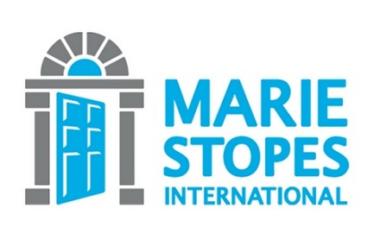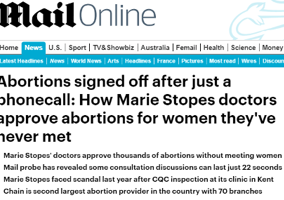The Charity Commission has criticised Marie Stopes International for the way its trustees decided on the latest pay package for the charity’s chief executive and issued the charity with formal advice.
The chief executive's remuneration package for 2018 amounted to £434,000.
Chief executive, Simon Cooke, received a 100 per cent bonus, doubling his £217,250 basic salary.
Meanwhile, redundancies cost the charity £409,000 in 2018, which is an increase from 2017 at £320,000.
This attracted widespread criticism when it was revealed this summer and the regulator opened a compliance case and asked Marie Stopes for an explanation.
The Commission said that the charity’s trustees have accepted that the written documentation around the decisions on the chief executive’s pay package were “inadequate” and it is “therefore not clear how the principles they were supposed to follow in setting this package were applied in practice”.
The Commission said that Marie Stopes International has not been able to provide the Commission with evidence that a “proper and robust discussion” took place either at full board or at the charity’s remuneration committee about the appropriate level of pay. It added that the trustees could not show that they had taken into account all the relevant factors, as required by the Commission’s guidance.
The trustees have told the Commission that a robust discussion did take place, but was not properly noted or minuted.
Marie Stopes: 'Trustees accept that the formal written documentation of their deliberations could be improved'
A spokesperson for the Marie Stopes International board of trustees said: “The trustees take their responsibilities for the evaluation of chief executive remuneration seriously, and strive at all times to ensure that the pay of the chief executive is properly benchmarked and is set against tough and measurable targets designed to achieve the highest possible impact and return on investment for our donors and stakeholders.
“Trustees accept that the formal written documentation of their deliberations could be improved, and have committed to the Charity Commission to do so.”
Formal advice
The trustees have been issued with formal advice under section 15(2) of the Charities Act 2011, requiring them to review the factors it takes into account when making decisions about the chief executives remuneration. The trustees have also been directed to ensure that all their decisions are adequately recorded so that the factors taken into account are clearly set out, as well as the final decision.
Helen Stephenson, chief executive of the Commission, said: “We understand why the public care about how charities pay their staff and why this undermines the reputation of charities as a whole. It’s because issues like chief executive pay help the public see how a charity is stewarding its resources, and whether it is behaving in an authentically charitable way, distinct from the attitudes that might prevail in a commercial organisation.
“We are not a regulator or controller of executive pay. But we expect decisions of this nature to be made carefully, mindfully, and in a way that ultimately serves the charity’s beneficiaries into the future and demonstrates their special status as a charity.”
The Charity Commission plans to publish a report on senior pay at charities next year.
|
Related Articles











